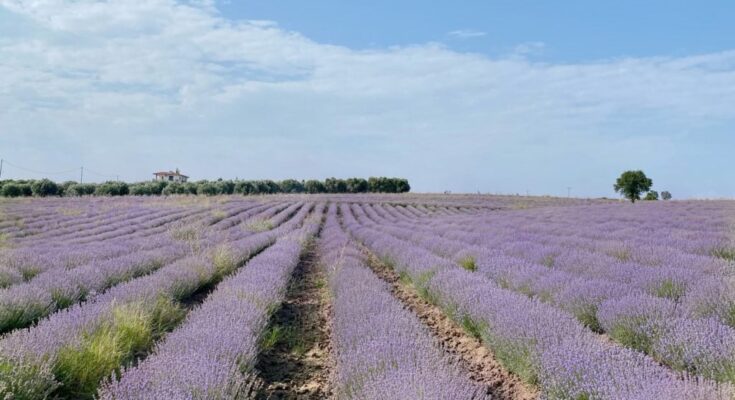Lavender, one of the most popular herbs in the world, has been highly valued since ancient Greek times. Moreover, it was the ancient Greeks who were the first among Europeans to study, cultivate, and appreciate this plant.
Lavender is an evergreen and a plant that has conquered people’s appreciation with its potent properties. The word itself comes from the Latin “lavare,” which means “to wash, clean.” In the ancient world, it was valued for its particularly unique aroma, beauty, and vast benefits.
Lavender Fascinated the Ancient Minds
The earliest known references to this plant go back more than 2,500 years. In ancient Egypt, lavender was used in embalming and cosmetics. This was confirmed when archaeologists opened Tutankhamen’s tomb in 1922 and discovered jars of ointments containing elements resembling lavender. Apparently, this herb attracted the attention of the royal families, who used it in beauty treatments, massage oils, and medicines. In addition, wealthy men also applied this ointment to their heads to surround their bodies with fragrance.
Lavender is believed to have first appeared on the Greek islands and was then brought to France around 600 BC. By the 17th century, it subsequently spread to other countries, including England and the United States.
The ancient Greeks highly valued the many properties of lavender and used it as an aromatic, medicine, and perfume. In the 3rd century BC, the Greek philosopher Theophrastus described its healing features in his book On Odours. Interestingly, the Greek philosopher Diogenes preferred to apply lavender to his feet rather than his head, saying: “When you put incense on your head, they fly into the air, but if I put them on my feet, the aroma envelops my entire body and flows up to my nose.” Anacreon, the notable Greek lyricist, recommended that the lavender ointment be applied to the chest.
For centuries, lavender has been used in soaps and cosmetics for its fresh fragrance and antiseptic properties. Herbalists also used this plant as a medicine. In ancient Greece, it was considered a remedy for insomnia and back pain. Even Dioscorides, the renowned physician and one of the fathers of botany, claimed that consuming lavender helped with indigestion, sore throats, and headaches.
Hippocrates, the father of medicine, also praised the properties of lavender, writing that it “warms the brain, tired of the years.” He noted that the use of this plant in food is very healing for diseases of the liver and spleen. In addition, Hippocrates believed that fumigation with lavender could destroy not only a heavy smell, but also an evil spirit.
Lavender Fields in Modern Greece
Today, this plant is associated with French Provence, but Greece also has an abundance of blooming lavender fields, and these are not crowded with visitors. They are located on the mainland of the country away from popular tourist routes.
During the flowering period, which falls in the summer months, particularly in June, the fragrances of lavender fields can be detected many meters away. The fragrances refresh the heavy sultry air during the hot Greek summer months, providing respite from the heat.
One of the areas with purple fields is located near the city of Kozani at a place called Xirolimni. The best place to admire the lavender fields stretching to the horizon is located near the village of Mesimeri on the way from Thessaloniki to the Halkidiki peninsula.



